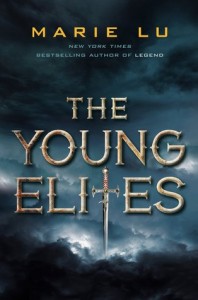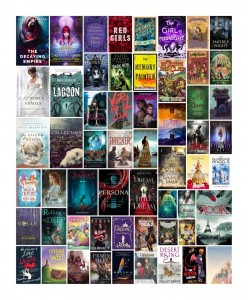In this last part of our annual series on programming proposals, we’ll cover workshops and afternoon classes. While the focus and structure of these types of presentations are a little different, the proposal process is very much the same.
Workshops
Workshop sessions are led by an instructor and focus on the application and practice of craft. Generally, an attendee will expect to gain or expand upon a particular skill at a workshop, and the opportunity for participation marks this style of presentation.
Workshops often focus on some aspect of fantasy-related craft, like writing or art, but might also take a practical turn. Some examples:
- how to plan a book club/reading group
- how to write a satisfying ending
- resources for library collection planning and development
- how to self-edit your fantasy book
- how to draw La Llorona
Seating specifics depend on the allotted rooms and overall program schedule, but typically, workshops have limited seating so that the instructor (or instructors) can answer questions and provide assistance to all of a workshop’s attendees.
Afternoon Classes
Afternoon classes are less formal demonstrations or classes in areas related to fantasy literature. They are not meant to replace workshops; instead, they are an opportunity for presentations that are of interest to fantasy fans but that are less closely related to the conference’s focus or theme, or topics that are fantasy-based but not necessarily related to a particular work. Afternoon classes may be similar to workshops or be more demonstration-based than how-to, and may be led by one instructor or a group. Some examples:
- historical dress and music
- martial arts
- weaponry
- battle strategy
- costume construction
- folk dancing
- displayed collections of related works, like comics about women in fantasy
Afternoon classes are scheduled in blocks that range from one hour to 90 minutes, depending on available space and time during the conference, but instructors should plan for a shorter time block rather than a longer one.
Please note: If you’re unsure about which particular proposal type to choose, we’re happy to help. You can leave a comment here, attend an open chat, or write to (programming at sirensconference.org) for a consultation.
Timing
If you choose to propose a workshop or class and it is accepted, you’ll be scheduled in a 50-minute time block (unless you’ve explained and justified a request for additional time and we’re able to provide it—we won’t be able to confirm the length until the schedule is complete, usually in August).
If you have a workshop or class idea that could be presented in less than one hour, please consider teaming up with another presenter to team-teach or present on two items in a 50-minute block.
Afternoon classes are usually scheduled in the late afternoon, as more formal presentations wind down, and so we can rearrange chairs or make some noise if needed. We’ll try to find the best fit on the schedule, however, even if that means a different time during the day.
Getting Started
First, you’ll need to choose a focus for your workshop or class. What do you know that you can teach to someone else in about an hour? How can you make your workshop interactive and relevant? Are you aiming your workshop at beginners, intermediates, or advanced participants?
Once you’ve focused your idea, you’ll need some information ready to make your proposal.
Personal Information to Gather
1. Your contact information (which is not shared with the vetting board). All correspondence about your proposal will be sent via email, so make sure to use an address that you’ll have through the end of 2015 and that you check regularly. Please add (programming at sirensconference.org) to your safe sender list so that correspondence is delivered to your inbox.
2. Name to be published for presenter on website, schedule, and program. While we ask for some personal information to allow our registrar to confirm your status as a registered attendee, we know you might want to use a different name for your presentation, whether that’s a pseudonym, an online handle, or a formal name that you use professionally. (Please note that we drop titles on our schedule and with presentation summaries, but you’re welcome to note titles and professional credentials in your biography.) The “name to be published” will be the name we show to the vetting board, programming volunteers, and other attendees.
3. Professional affiliation. This is for those presenters who wish to note their current association with a university, and occasionally, a business or professional organization if their presentation is related in some way and they’re speaking with the endorsement of their job. Some people use this field; most don’t unless they’re currently teaching at a university.
4. Your biography. Tell us, in under 100 words, a little about you. A couple of sentences work fine! You can explain any experience, studies, or long-term interest in your topic; tell us where you’re going to school; or what you do as a job or as a hobby. Shorter is better, because space is limited.
Proposal Information to Gather
There are three items that you’ll need for a complete workshop or afternoon class proposal.
1. Title. Remember that this title will be shown to the vetting board, so neither “Untitled” nor “TBA” is a good title idea! On the other hand, you don’t have to come up with something witty—just explain what the workshop or afternoon class is about.
2. A summary of no more than 100 words. This is the very short version of your presentation that will be published in the program book and on the Sirens website. This is where you have the chance to attract an audience who will be interested in attending your workshop or afternoon class. It should be concise, written for a general audience (in other words, avoid slang and jargon, if you can), and give people a sense of your perspective(s) on the topic.
Here are a couple of examples from past years that we think are excellent:
What brings people together better than the written word? If you’re looking for a way to increase the appreciation and readership of speculative fiction in your city or school, you might consider creating your own literary journal or zine! We’ll learn about the simple steps to create your own journal and then develop a unique concept to take home! [workshop]
Would you love to include horses in your manuscripts, but find that you don’t actually know much—or anything—about them? Many authors write horses into their books without consulting a professional horsewoman (okay, or horseman) first. The result might be an amusing mistake, or a total turnoff to the reader. Don’t worry; with a basic understanding of horses and the equipment related to them, anyone can write horses into their stories as a mode of transportation or as fully realized secondary characters. [workshop]
Bring your curiosity to this presentation on dark ages armor. Dave will show you materials commonly used to make dark ages armor such as leather, hides, and wrought iron, as well as a few dark ages weapons. He will demonstrate the effectiveness of these weapons in penetrating these armor materials. Attendees may be able to try on various bits of armor. By the end of this class, you’ll have an appreciation for armor used in the dark ages and how effective it would be at enhancing the survivability and combat potential of those who wore it. [afternoon class]
You are invited to an introductory class about Scottish Country Dancing, an eighteenth century style of ballroom dancing that is still popular today. This is a fun and social style of group dancing (and it’s really hard to step on your partner’s toes!). The class will include two ceilidh (informal) dances and one basic ballroom dance. Enthusiastic participation is necessary, but previous experience is not. [afternoon class]
This afternoon class is designed to teach attendees the very basics of faerie wing construction using at least two distinct types of materials: fabric and cellophane. Other materials and types of wings will be discussed to show attendees the variety of options they have when creating costume pieces. Each person will be given a pre-built wire frame as a base to build their individualized wings. Participants are asked to donate a small amount to material costs. [afternoon class]
As a storyteller, a public person in the world, your voice is an important and powerful instrument. Your whole body, your whole being is your voice! This workshop will give you a toolbox of warm-ups and exercises that will set you on the path to your own sound. Would you like to explore vocal techniques that help keep an audience riveted as you read to them? Would you like to learn how to project your voice powerfully without fatigue or soreness? Would you like to feel freer using your voice? Come prepared to work your breath, move your body, and make noise with Pan Morigan, music director of Chrysalis Theater and award-winning vocalist/songwriter. You absolutely do not have to be a singer or experienced “voice person” to attend! Even experienced singers have to deal with vocal basics every day, and you can do it too. Come play! [afternoon class]
3. An abstract of no more than 500 words. An abstract is a complete—but short—version of your presentation.
For a workshop or afternoon class, you can choose to summarize your workshop in a paragraph or two, or you might put together a lesson plan for your workshop instead. Be sure to explain any terms that might be unfamiliar.
You are welcome to submit a lesson plan; an outline of your plans can be more helpful than a summary of your philosophy. Please note, however, that a lesson plan is more than just an outline. A lesson plan includes, very specifically, the purpose for the lesson, what a student will learn, how the teacher will go about the lesson, and what the outcome will be.
Here are a couple of resources you might use to put together a brief but cohesive abstract section for your proposal:
If you’d prefer to write a formal abstract, some of the previous posts in this series included more in-depth information.
More tips:
Most abstracts range from 100 to 300 words, though they can be up to 500 words, and are 1–3 paragraphs long. Aim for about 300–350 words, and at least a good, solid paragraph, unless you need more space to explain a theory or cite sources. If you’re taking the lesson plan route—highly recommended—you’ll need to walk through the content and timing of your workshop or afternoon class.
Your abstract should not be the same as your proposal summary. An abstract is the part of your proposal where you get a little more room to convince the vetting board that your presentation should be chosen. It is the short version of your eventual workshop or afternoon class, and helps the vetting board see the value of what you’ll teach, and why it’s important.
“See my other proposal for X [biography, summary, alternate abstract]” usually results in a declined presentation, because the board members may not have access to your other proposal for a variety of reasons: it could be on hold while collaborators check in, the board members may not yet be reviewing your other proposal, or they may simply decide they are unwilling to search through the proposals to do this comparison for you. Take a moment to copy and paste in your information again.
Make sure that your proposal is complete. The vetting board wants to know that you have a clear plan. No “maybe we’ll do this, or maybe someone in the audience will suggest something, or if you want, I could do this or that.” There’s a difference between allowing room for audience participation and not having a plan!
Have a volunteer who is willing to provide you with honest feedback look over your proposal, both to proofread it and to offer suggestions for organization, focus, and purpose. Remember, the vetting board will decide whether to accept or decline your presentation based on your summary and abstract.
Audio-Visual Requests
Workshops typically seat 25–40 attendees, so the provision of microphones depends on the overall schedule, the size of the room we have available for your workshop, and so on. You can make a request for computer and LCD projector, but please remember that we prioritize use of equipment for visually-oriented presentations, and consider what you might do if extra audio-visual support isn’t available. (We’re typically able to offer projection to workshops, but we can’t confirm availability until the schedule is complete. Please do explain how you’ll use a projector at the end of your abstract!) An easel and a small dry erase board will be provided.
We do try to fulfill as many audio-visual requests as possible, particularly for presentations like workshops, but it never hurts to have a plan B in mind. Afternoon classes are supported with audio-visual equipment in much the same way.
Typically, we schedule afternoon classes in larger spaces than workshops, particularly if they’re demonstration-based or if materials aren’t needed for each person.
FAQ about Proposals for Workshops and Afternoon Classes
What are the requirements for presenting? Do I have to be a teacher or scholar?
Our only requirement is that you be eligible to attend Sirens, which means that you must be at least 18 years old by October 8, 2015. We have no academic or professional requirements, and in the past we’ve received excellent presentations from high school students, grandmothers, professors, musicians, fans, and teachers, among others. Remember—your voice is important.
When is the proposal deadline?
May 15, 2015.
Do you accept all workshops/afternoon classes?
No; we forward all proposals to the vetting board, which selects the presentations that will be accepted for Sirens.
If my proposal is declined, can you tell me why?
Unfortunately, we can’t. We simply have too many proposals, and we don’t ask the vetting board members to write up formal feedback. We can say, however, that proposals are never declined because they include unpopular opinions or controversial takes, or on the basis of personal relationships; the board is designed so that no single person accepts or declines a submission. In the past, we’ve found ourselves in the lucky position of having more excellent ideas than we could include, and that will likely be true in the future as well.
Should I contact the vetting board about my paper/presentation?
Please do not contact the vetting board members about your proposal. They make their decisions confidentially, and can’t answer questions about the status of your paper. Instead, please write to (programming at sirensconference.org) if you have questions. We’re happy to help!
How many proposals can I make?
As many as you like. However, we want to emphasize that one or two presentations is a good maximum number that enables you to be part of the presenting side and part of the listening side, so we recommend that you focus on just one or two proposals that you’re most excited about.
What if I make a proposal and it’s accepted, but I can’t come?
If you find out that you won’t be able to attend before May 15, 2015, you can ask around to see if someone can take your place or withdraw the presentation. Perhaps another attendee would be willing to fill in at the conference if you can provide your lesson plan. We have a Facebook page and message boards where you can post for assistance. We appreciate it when you make an effort to ensure that your presentation can remain on the schedule. If you’re unsure what to do, write to (programming at sirensconference.org) and we’ll talk about options.
Can I change the title of my workshop or class later? Can I change the format or focus of my presentation?
If you provide us with the information before the presentation is passed on to the vetting board, then yes, you may make changes to the title or summary, as long as the focus of your presentation is not substantially changed. We will ask you for a final confirmation upon acceptance, and you will have a short time to make updates before the information is published and final.
You may not make major changes to your presentation’s direction or format once it has been accepted; the proposal that you entered is the one that the board approved. If you wish to make substantial changes to your presentation, and it is earlier than May 15, 2015, please write us to withdraw your existing presentation and then create a new one through the submissions system.
Can I request a specific day and time for my presentation?
Unfortunately, no. While we will take certain immovable factors into account, like presenting at another conference during the same weekend, we have so many presenters and constraints that we’re unable to take scheduling requests (everyone wants to present at the same time, but without being at the same time as any other presentation). The schedule depends on our ability to create thematic tracks of presentations, our need to accommodate presenters with multiple presentations, any restrictions on space and available hours, and availability of audio-visual equipment. You should expect your presentation to occur on October 9 or 10, 2015.
Do you “track” presentations?
We make an attempt to schedule presentations into morning and afternoon tracks by theme and by type of presentation, and sometimes by format and audio-visual needs. The advantage here is that an attendee could spend half a day absorbed in a topic or theme without needing to move from room to room. That’s not always possible, of course, because of the different styles of presentation, but we do try not to schedule two presentations on closely related topics at the same time, whenever possible.
How can I connect with other presenters or collaborators?
Please feel free to tag @sirens_con on Twitter, to post on Facebook, and to check out our message boards to suggest ideas that you’d like to see someone propose, to search for collaborators, and to brainstorm topics.
Questions? Concerns? Please email general queries to (help at sirensconference.org) and questions about programming to (programming at sirensconference.org).
Quick links:
Programming Overview
Call for Proposals/Guidelines/Additional Preparation Information
Submit a Proposal
Past Conferences Archive
Specific Questions for the Programming Team: Email (programming at sirensconference.org)
If you’re looking for co-presenters, why not place an ad on Facebook or the Sirens message boards?
Join Us for a Chat!
We’re hosting a chat on the Sirens website for talking about programming ideas. Join us on Sunday, April 19, from 1 to 2:30 p.m. Eastern. The linked page will turn into a chat during that time; no software or downloads are required, but you may need to refresh the page.
Also, our Twitter account is @sirens_con and our hashtag is #Sirens15. #SirensBrainstormMonday on Twitter has topics free for the taking (and if you have too many ideas, please feel free to contribute your extras).











Connect with the Sirens community
Sign up for the Sirens newsletter